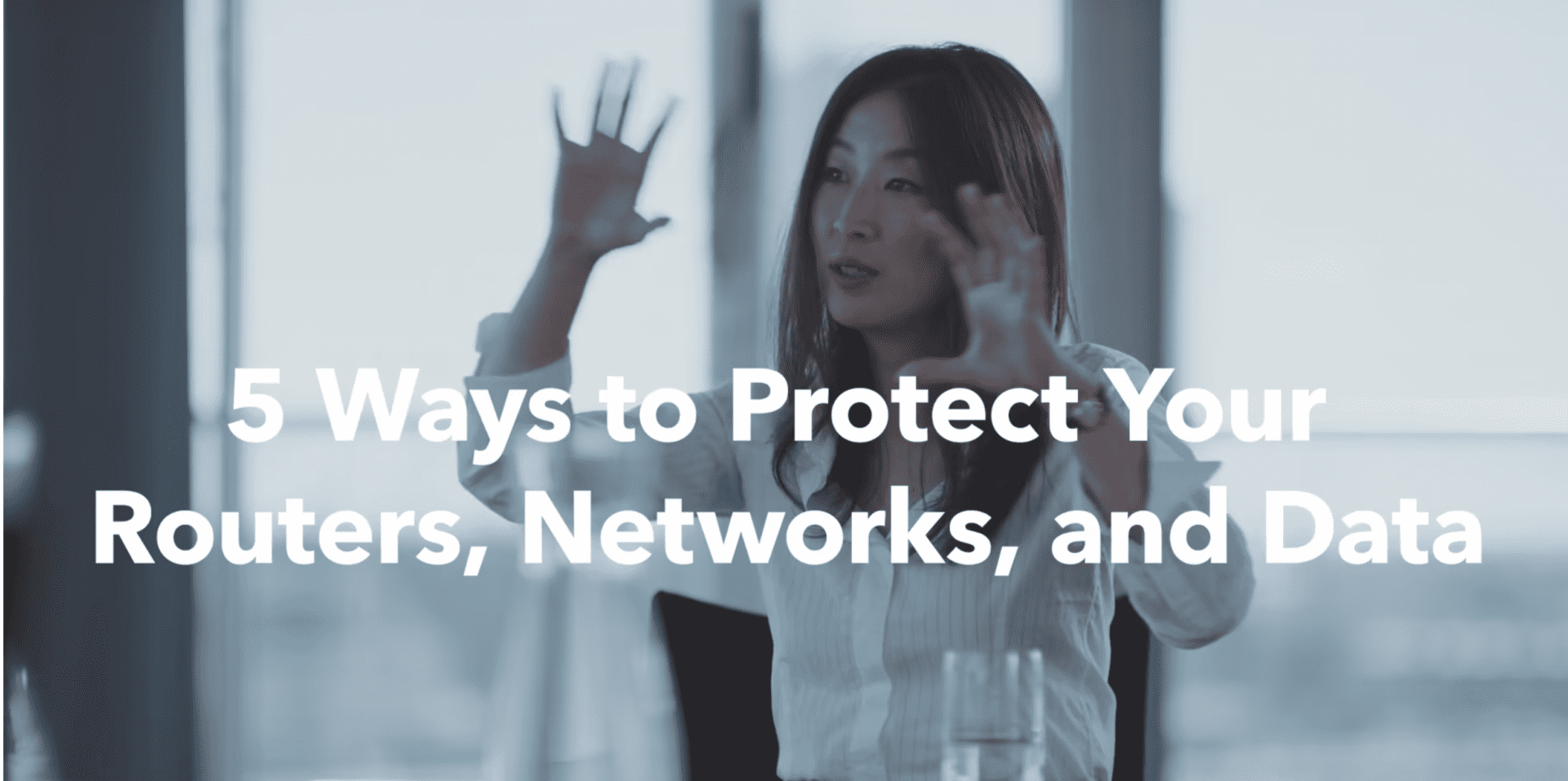Would you believe that your wireless router might just be the most important device your company uses every day? Routers monitor all network traffic coming in to and going out from your business, acting as an initial line of defense to prevent unauthorized access—and protect sensitive information.
Of course, gone are the days when every employee accessed the Internet and the company network from the physical office. Today, with remote work becoming more common, each staff member represents a unique point of access to and from your business, with multiple desktops, laptops, smartphones, tablets, network drives, and printers connected to each router.
Extra layers of cybersecurity might need to be constructed around each of these entry points. If a bad actor gains access to just one of these devices, compromise is likely—and chaos can ensue.
Strong routers should use WPA2 security, which requires any new device that wants to connect to it to enter a password. Unfortunately, many Wi-Fi routers come with a standardized, simplified network name and password that can be easy for hackers to crack. The good news is that you can easily update and customize those credentials, usually by logging in to a website, downloading an app, or working with a trusted IT provider. It’s a good idea to regularly revise the Wi-Fi password on your router, too—yes, you’ll have to reconnect, but this password reset can also remove any unwelcome visitors who could be lurking on your Wi-Fi network.
If your router allows you to add a publicly available guest network, activate it now. This grants any guests the access they need to your Wi-Fi connection while segmenting your business’ critical or sensitive information away from prying eyes. This also places another obstacle in the way of anyone secretly trying to compromise your network without permission—even if hackers do manage to get onto your guest network, they won’t be able to take control of other devices or access settings on your router itself. Check to see if your router allows you to hide the SSID of your main network—this is the name of the network that appears when devices search for a Wi-Fi signal. That way employees and other trusted contacts can be added to your protected network, without the general public having access to it. A trusted IT provider can help to check all of these settings.
Regular security updates and firmware patches are a fact of life for Wi-Fi routers. These essentially tell the router how to operate under certain security standards—and if a router falls behind on updates or doesn’t receive a critical patch, vulnerabilities can take over. Many enterprise-grade routers automatically update themselves, but if you aren’t sure about the process, don’t risk having your router exploited. Work with a trusted business partner to review your router (and the rest of your devices) and make sure security updates and software patches occur automatically during off-hours so your day-to-day operations aren’t interrupted.
Even though many business owners and IT experts now concentrate on router security, these devices still represent a major cybersecurity threat. That’s because a router can be compromised by a phone or laptop that it previously trusted if that device itself is compromised. If you want to minimize this risk, practice good security principles every day by keeping all applications updated, using strong passwords on every device, and making sure other networks are protected by multiple layers of cybersecurity solutions.
If you have multiple employees working in remote locations but accessing important business information, consider implementing a company-wide VPN policy. VPNs work double duty by encrypting data and shielding the IP address used to access the Internet by redirecting all network activity through a secure process that connects with servers in different locations. This is a major enhancement over public Wi-Fi, which offers convenience but with serious risk. Instead of accessing the same network as other users, VPNs offer private connections for every individual—and extra levels of data encryption for any business with a telecommuting workforce.
Any time that a device connects to the Internet wirelessly, security risks exist. Wireless routers are just as susceptible to malware and cyberthreats as other devices—and even VPNs don’t offer 100% protection. Both solutions can be confusing for average users, and many businesses need help properly deploying these extra layers of security.
At CMIT Solutions, we’ve helped thousands of businesses across North America to enhance their cybersecurity, offering trusted policies and procedures for employees who need to connect to the Internet in the office and at home. If you need help checking your router, implementing VPNs, or assessing the security of other devices and systems, we can help. Contact CMIT today.

